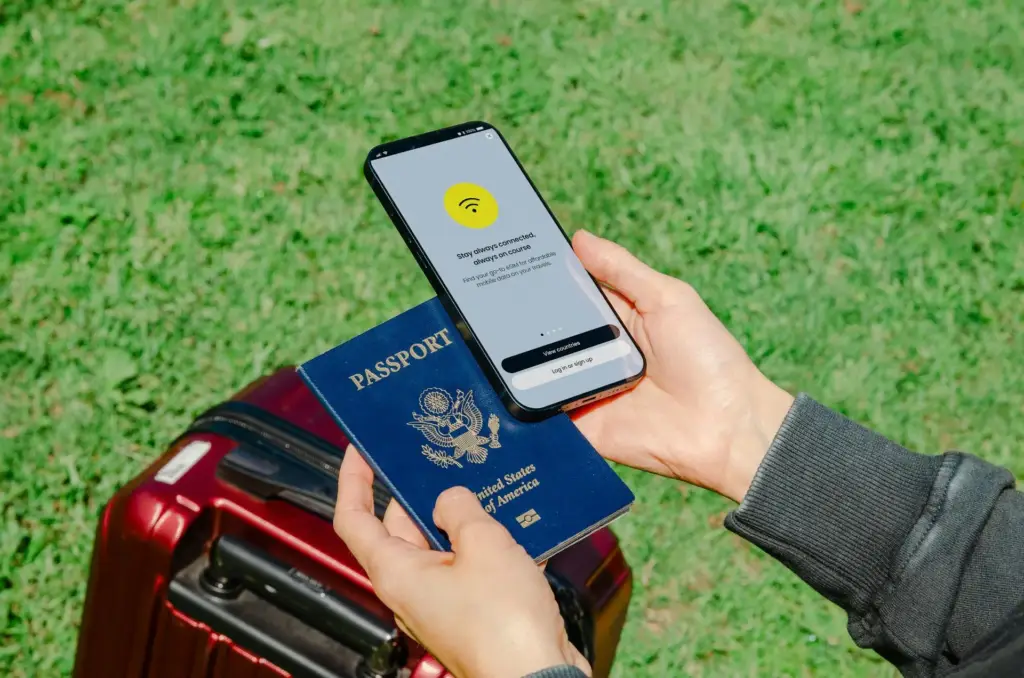In fact, AI in the Travel Industry is rapidly transforming the way businesses and travelers interact, improving the personalization of travel experiences and customer service. Today, travel companies are embracing AI-based technologies to deliver more efficient, personalized and accessible services. From itinerary planning to automated customer service, AI is radically changing the way we explore the world.

Personalization of Travel Experiences
One of the greatest benefits of AI in the Travel Industry is its ability to personalize travel experiences to a level never seen before. Through the analysis of vast amounts of data, artificial intelligence systems can better understand travelers’ preferences, from their favorite destinations to their preferred activities. This allows travel companies to provide more accurate recommendations tailored to each traveler’s individual needs.
For example, many booking platforms use AI to suggest destinations, hotels or activities based on a user’s search history, past travel reviews and demographics. AI can even adjust recommendations in real time based on budget, geographic location or weather. This not only improves the traveler’s experience, but also helps companies increase conversion rates by offering options that truly matter to their customers.

Smart Itinerary Planning
Planning a trip can be a long and complex process, but with the help of AI in the Travel Industry, this task has become more efficient. AI-based systems can generate customized itineraries that optimize the traveler’s time and interests, considering factors such as transportation, local attractions and available time.
There are applications that, by simply entering travel dates and main interests, can generate an itinerary complete with suggestions for places to visit, activities, and restaurant recommendations. In addition, these platforms can automatically update themselves if there are changes in travel conditions, such as flight delays or attraction closures, ensuring that travelers always have alternatives at the ready.

AI and Customer Service in Tourism
AI in the Travel Industry is also revolutionizing customer service, providing fast and effective solutions through chatbots, virtual assistants and voice recognition systems. AI-powered chatbots are available 24 hours a day to answer common questions about reservations, itinerary changes, activity recommendations and more. This allows travel companies to offer continuous customer service without the need for human staff at all times.
In addition, AI-based virtual assistants, such as those used by some airlines and hotel chains, can handle complex requests, such as flight changes, automated check-ins and questions about services available at destinations. By reducing reliance on human employees for these routine tasks, companies can focus their efforts on providing more personalized service and improving the customer experience.

Price and Offer Optimization
The AI in the Travel Industry not only improves the traveler experience, but also optimizes the operations of travel companies. Thanks to machine learning, companies can dynamically adjust prices for flights, hotels and activities based on demand, seasonality and other factors in real time. This ensures that travelers always get the best deals available, while companies maximize their revenue.
For example, airlines and online travel agencies can use AI algorithms to analyze demand patterns and automatically adjust prices to make the most of market opportunities. This optimization not only helps companies increase their profitability, but also improves customer satisfaction by offering competitive prices.

Future Applications of AI in Tourism
The future of AI in the Tourism Industry promises even more amazing advances. Augmented reality and artificial intelligence are being integrated to create immersive experiences, such as virtual tour guides that provide real-time information about the places travelers are visiting. In addition, AI-based instant translation tools are eliminating language barriers, facilitating communication between travelers and locals anywhere in the world.
Similarly, the use of AI is expected to play a crucial role in the sustainability of tourism, helping businesses manage the environmental impact of their operations and deliver more environmentally responsible experiences.
Conclusion
In summary, AI in the Travel Industry is marking a before and after in how we travel, delivering more personalized, efficient and satisfying experiences for travelers around the world. From itinerary personalization to price optimization and automated customer service, artificial intelligence is taking tourism to new heights. In the coming years, we will undoubtedly see this technology continue to evolve and redefine the way we discover the world.

